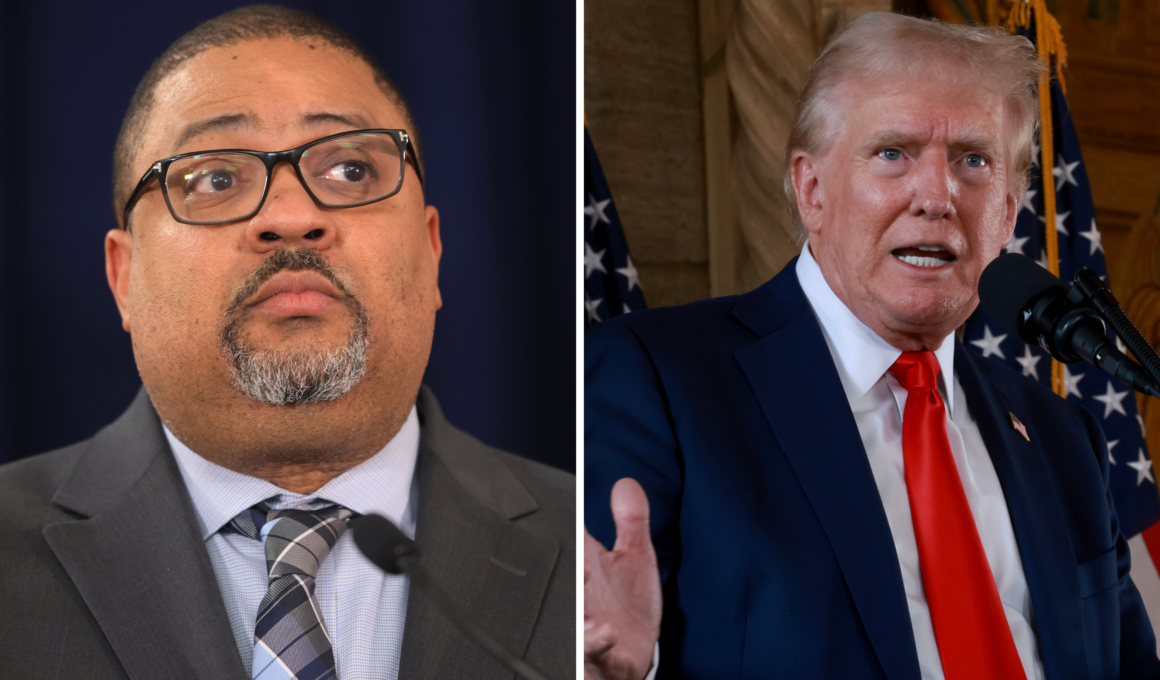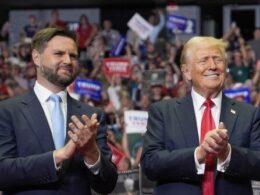Manhattan District Attorney Alvin Bragg remained neutral on former president Donald Trump‘s request to delay sentencing in his hush money trial until after the November presidential election, Reuters reported, and Bragg has deferred to Judge Juan Merchan for the decision.
Merchan is presiding over Trump’s hush money trial. In May, Trump was convicted on 34 felony counts of falsifying business records related to claims he orchestrated a hush money payment to former adult film actress Stormy Daniels ahead of the 2016 presidential election, to avoid exposing an alleged affair.
Trump, who denies a sexual relationship with Daniels and maintains his innocence, is scheduled to be sentenced on September 18. The sentencing has already been delayed once after the Supreme Court’s presidential immunity ruling in July, and Trump’s legal team has requested that the sentencing be delayed again until after the presidential election.
In a letter to Merchan, Bragg noted Trump’s right to appeal and deferred to the judge for the decision, taking no position on Trump’s efforts to delay sentencing.
“We defer to the Court on whether an adjournment is warranted,” the letter said, according to the Reuters report. “The People are prepared to appear for sentencing on any future date the Court sets.”
Trump’s campaign maintains that the accusations are part of a witch hunt against the former president.
“There should be no sentencing in this Election Interference Witch Hunt,” Trump campaign spokesperson Steven Cheung told Newsweek. “As mandated by the United States Supreme Court, this case, along with all the other Harris-Biden Hoaxes, should be dismissed.”
Requesting the delay in sentencing, Trump lawyer Todd Blanche wrote: “The Court should adjourn any sentencing in this case … until after the 2024 Presidential election.” He said this would reduce, or even eliminate, issues regarding the integrity of any future proceedings.
A sentencing delay also would allow extra time to see if the hush money case will be dismissed following the Supreme Court’s ruling on presidential immunity in July. The Supreme Court ruled that a sitting president isn’t protected from prosecution for personal actions, but they are generally immune from legal trouble for official acts.
Outside of the hush money case, Trump is facing several other legal battles, although recent rulings have been made in his favor. For example, in July, Judge Aileen Cannon dismissed a case alleging Trump mishandled classified documents. Trump had denied the charges.
Cannon dismissed the case over claims that Special Counsel Jack Smith was unlawfully appointed by Attorney General Merrick Garland because it was not first approved by the Senate, although Smith is appealing Cannon’s decision. Trump has also filed a $100 million lawsuit against the Department of Justice over the 2022 FBI raid of his Florida resort, Mar-a-Lago, which led to the charges.
Update 8/19/24, 1:09 p.m. ET: This article was updated with additional information.






